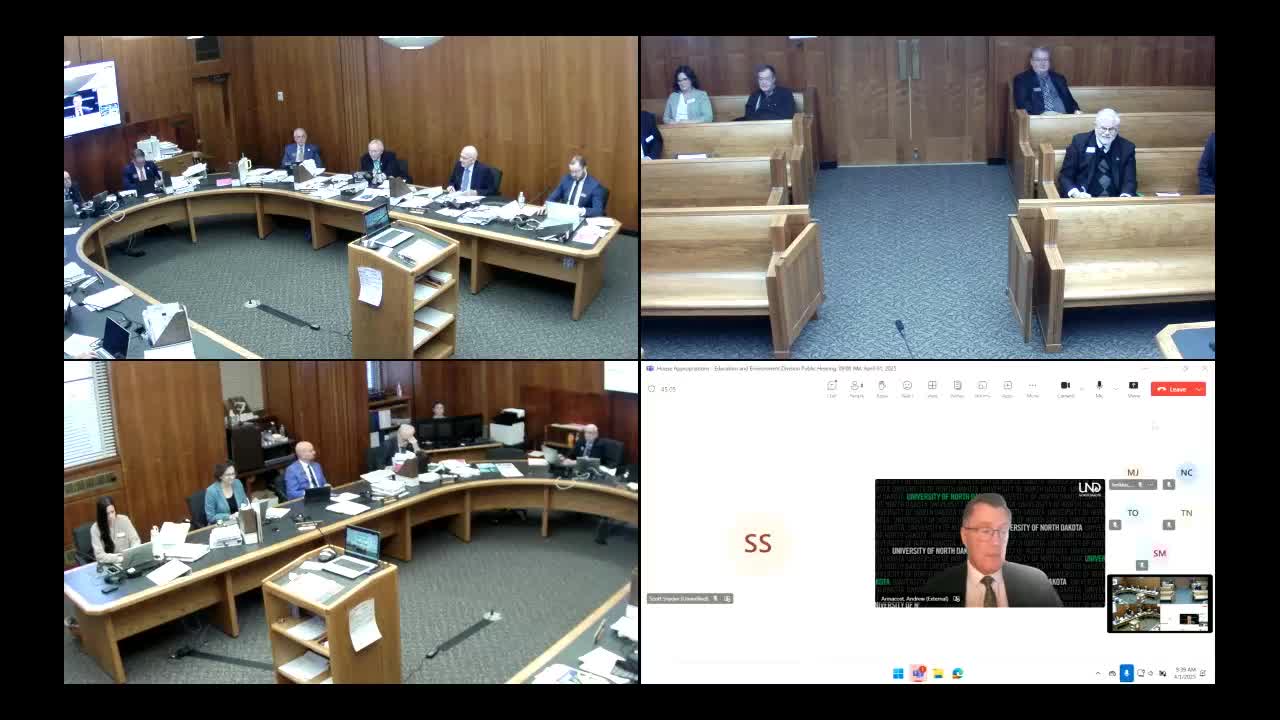Article not found
This article is no longer available. But don't worry—we've gathered other articles that discuss the same topic.
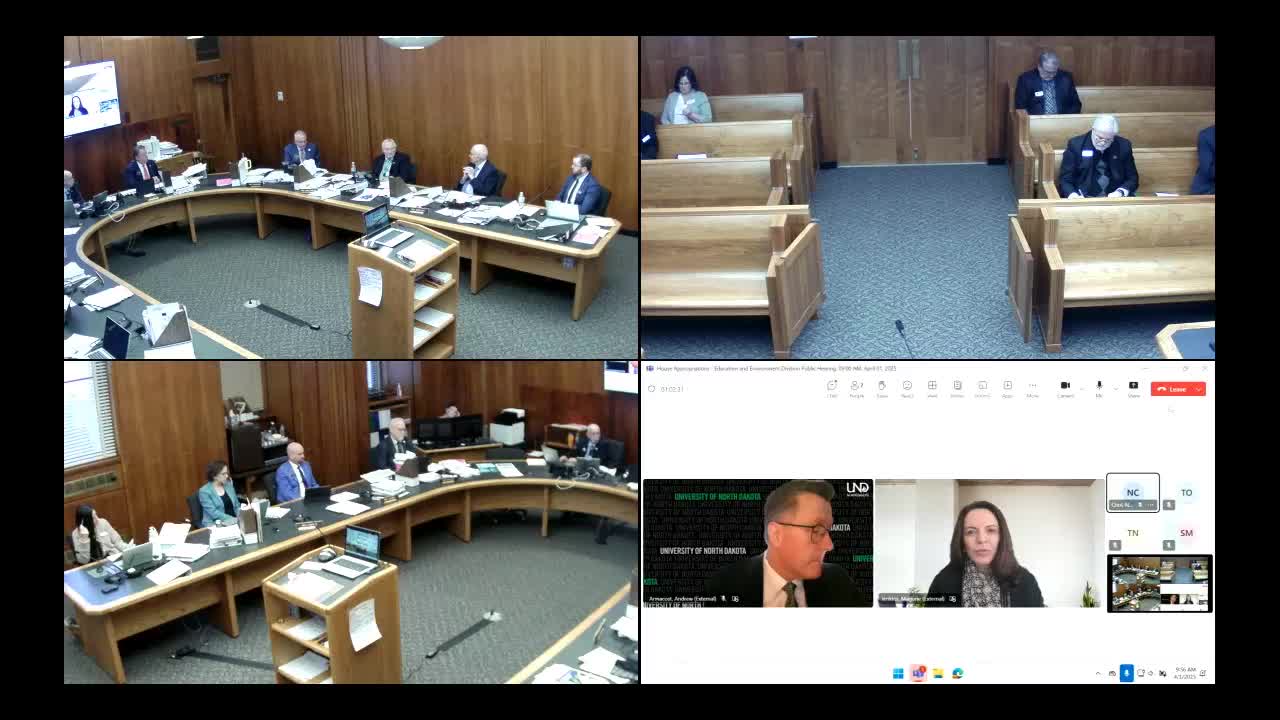
UND seeks authority to sell or lease two parcels; proceeds to fund deferred maintenance and relocations
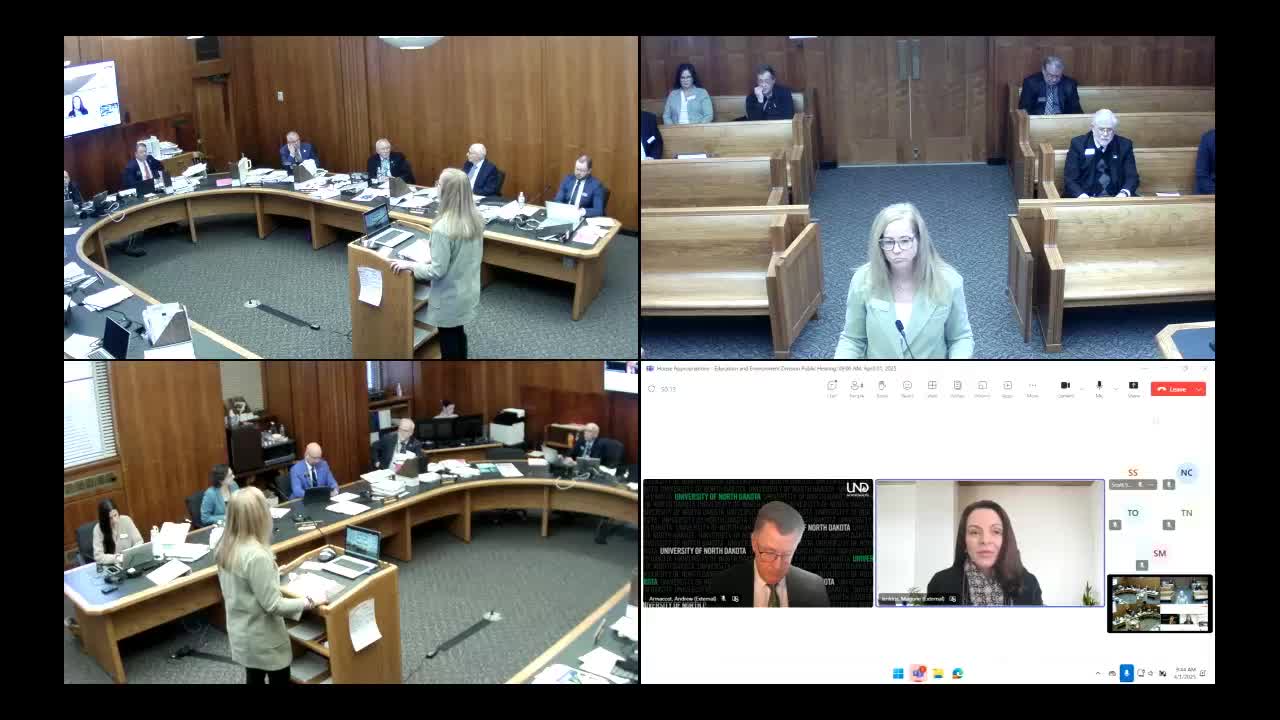
UND to vacate Columbia Hall within 12–15 months; medical school to absorb space and face a 6,000 sq ft shortfall
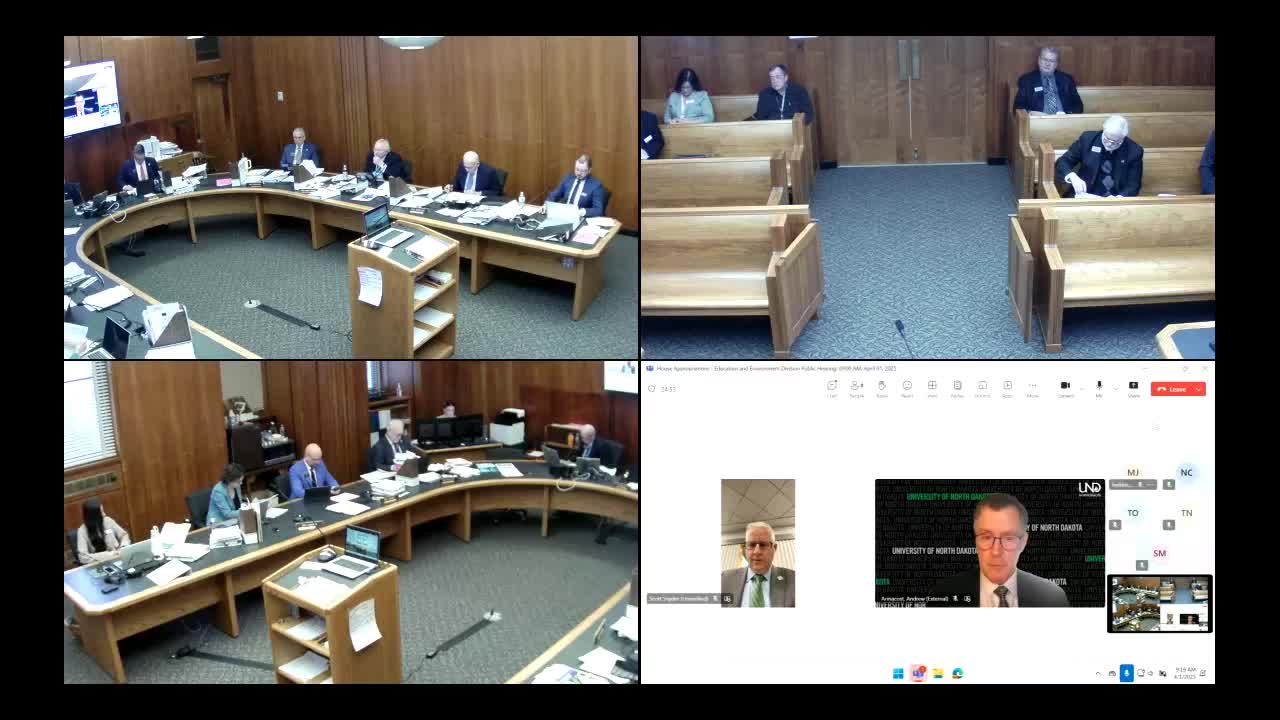
UND asks Legislature to fund SCIF and national-security research infrastructure
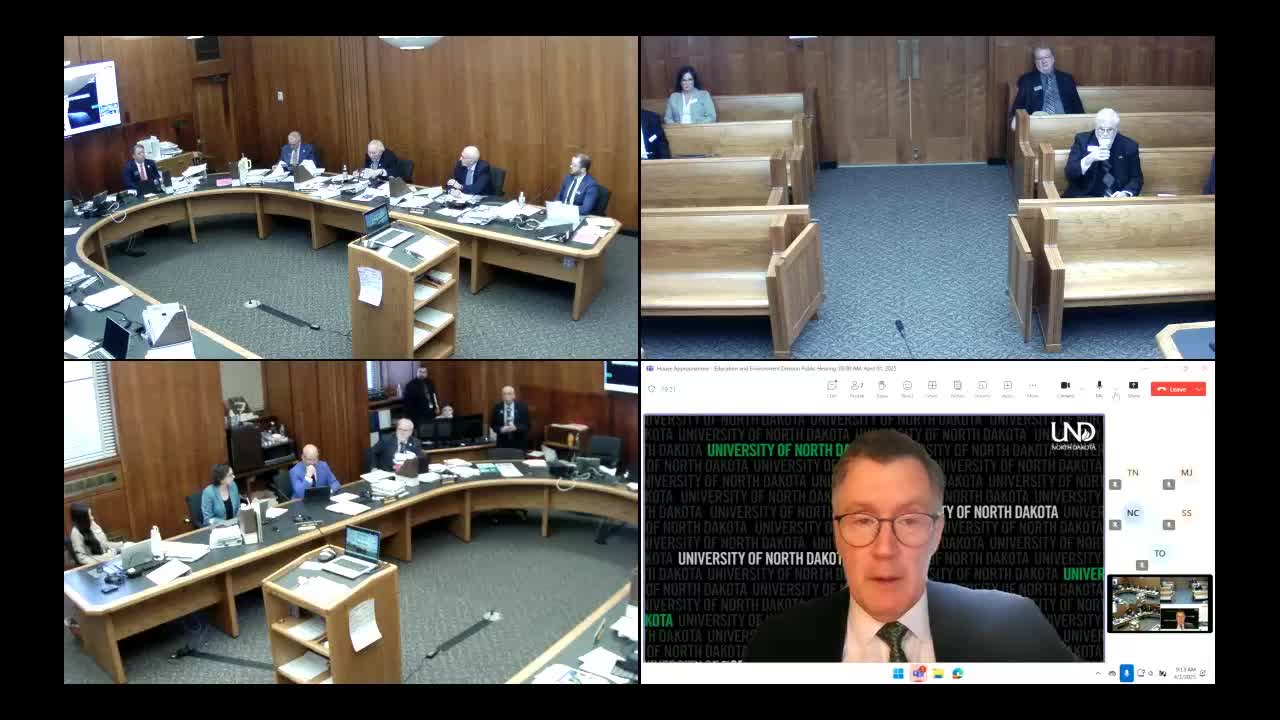
UND warns federal research cuts could cost millions after recent grant cancellations
